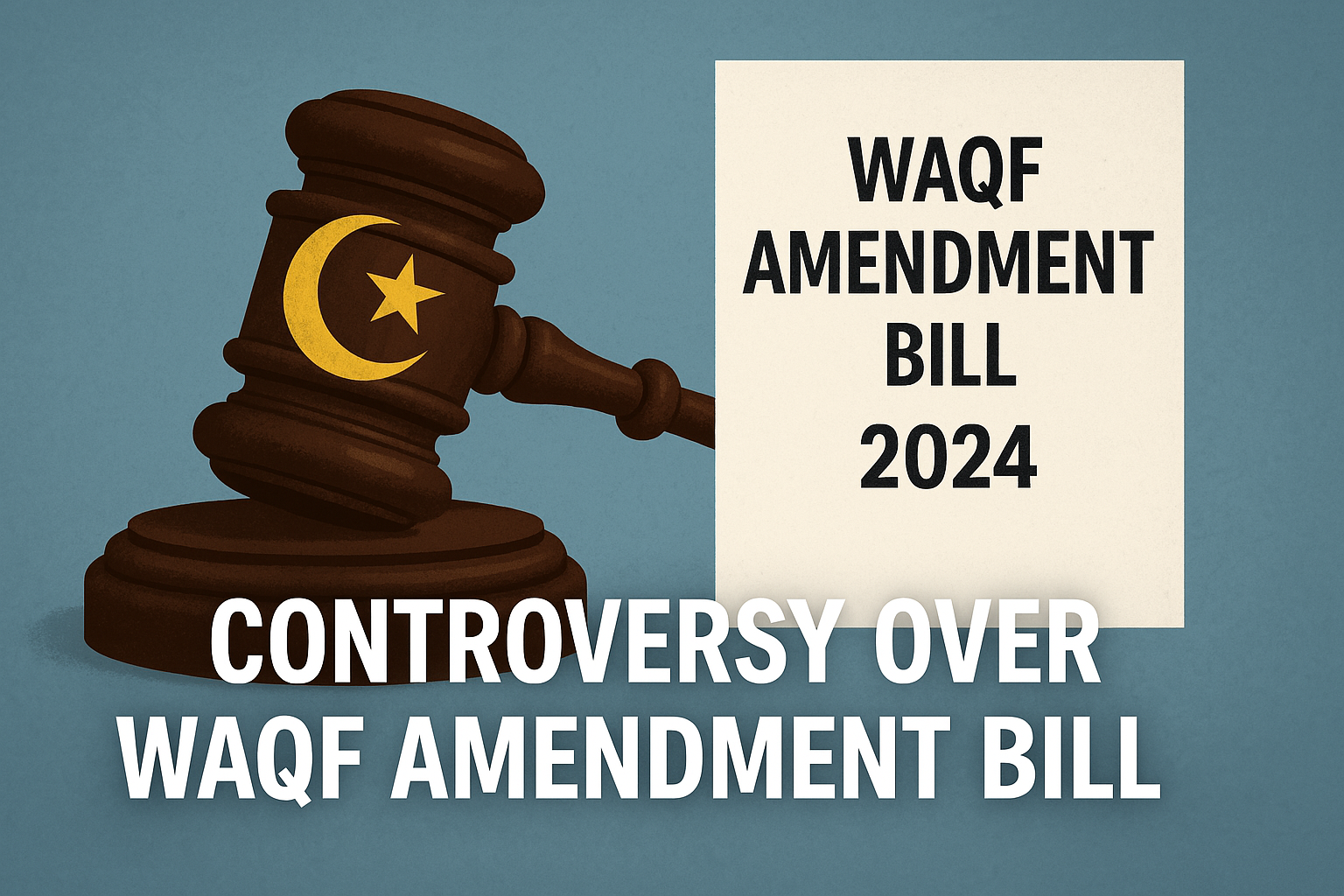What is Waqf Amendment Bill : Key Changes and Ongoing Debate
Preamble
The Waqf Amendment Bill, 2024, is set to bring about significant changes in the management of Waqf properties in India. These properties, which are given for religious or charitable purposes under Muslim law, have long been governed by the Waqf Act, 1995. However, issues such as encroachment, mismanagement and lack of transparency have necessitated reforms. The proposed reforms, aimed at improving efficiency and administration, have also triggered debates on religious autonomy and constitutional rights.
Background and Historical Context
The concept of Waqf in India has deep historical roots. During Muslim rule, Waqf administration was decentralised, with local authorities managing donations. After independence, the Waqf Act, 1954 was enacted to regulate Waqf properties, which was later replaced by the Waqf Act, 1995. The reforms in 2013 attempted to address the governance issues, but challenges persisted, leading to the latest proposal in 2024.
Key provisions of the Waqf Amendment Bill
The Waqf Amendment Bill, 2024 has introduced several major changes:
Creation of Waqf: Only individuals who have been practicing Islam for at least five years can declare a Waqf and must own the property. The bill removes the “Waqf by user” provision, which earlier allowed properties that were used for religious purposes over time to be classified as Waqf.
Survey and Ownership: The District Collector will replace the Survey Commissioners to conduct the survey of Waqf properties. Government properties known as Waqf will no longer be considered as Waqf.
Changes in Waqf Boards and Councils: The Central Waqf Council and State Waqf Boards can now include non-Muslim members. In addition, these bodies must have representation from various Muslim sects, backward classes and women.
Courts and Appeals: The requirement of Muslim law experts in Waqf tribunals has been removed. Appeals can now be filed in the High Court against the decisions of the tribunals.
Administrative changes: The CEO of the Waqf Board is no longer required to be a Muslim.
Renaming of the Act: The Waqf Act, 1995 will be renamed as the “Unified Waqf Management, Empowerment, Efficiency and Development Act, 1995” (UWMEEDA 1995). A central digital portal for Waqf registration is also proposed to enhance transparency.
Government’s rationale for the amendments
The bill aims to address several persistent issues:
Encroachment and mismanagement: Many Waqf properties are encroached upon, their maintenance is poor and revenue is also not being collected.
Lack of transparency: The current survey and registration process has been criticised for inefficiency.
Legal ambiguity: The bill seeks to clarify ownership rights and improve administration by giving a greater role to district authorities.
Controversies and opposition
Despite the government’s justification, the bill has faced significant opposition from political parties and religious organisations. Key concerns include:
Religious autonomy: Allowing non-Muslims on waqf boards is considered a violation of Article 26, which gives religious communities the right to manage their own affairs.
Restrictions on the creation of waqfs: The requirement that waqf founders must practice the Muslim religion for five years is considered discriminatory under Article 14.
Abolition of “waqf by user”: This could impact historic waqf properties such as graveyards and mosques.
Centralisation of power: Transferring survey powers to district collectors is seen as a step towards central control, which could lead to political interference.
Comparison with Hindu endowment laws: Critics argue that the bill imposes stricter rules on waqfs compared to Hindu religious trusts, raising concerns of unequal treatment.
Current status and legislative progress
As of 1 April 2025, the bill has been reviewed by a Joint Parliamentary Committee (JPC), which received over 800,000 petitions reflecting public interest. The Union Cabinet has approved the revised version incorporating some JPC suggestions and it is expected to be introduced in Parliament soon. While the ruling party is supporting the bill as a reform measure, opposition groups are opposing it, citing concerns over religious rights and governance structures.
Conclusion: Waqf Amendment Bill
The Waqf Amendment Bill, 2024, represents a significant legislative effort to reform waqf management in India. The government argues that the bill enhances transparency and efficiency, while critics see it as a violation of religious autonomy. While the debate continues, the final shape of the bill will determine its impact on waqf administration and broader issues of religious and legal rights in India.
DeepSeek: The Disruptive Force Shaking America’s AI Dominance and Sparking Global Innovation-

